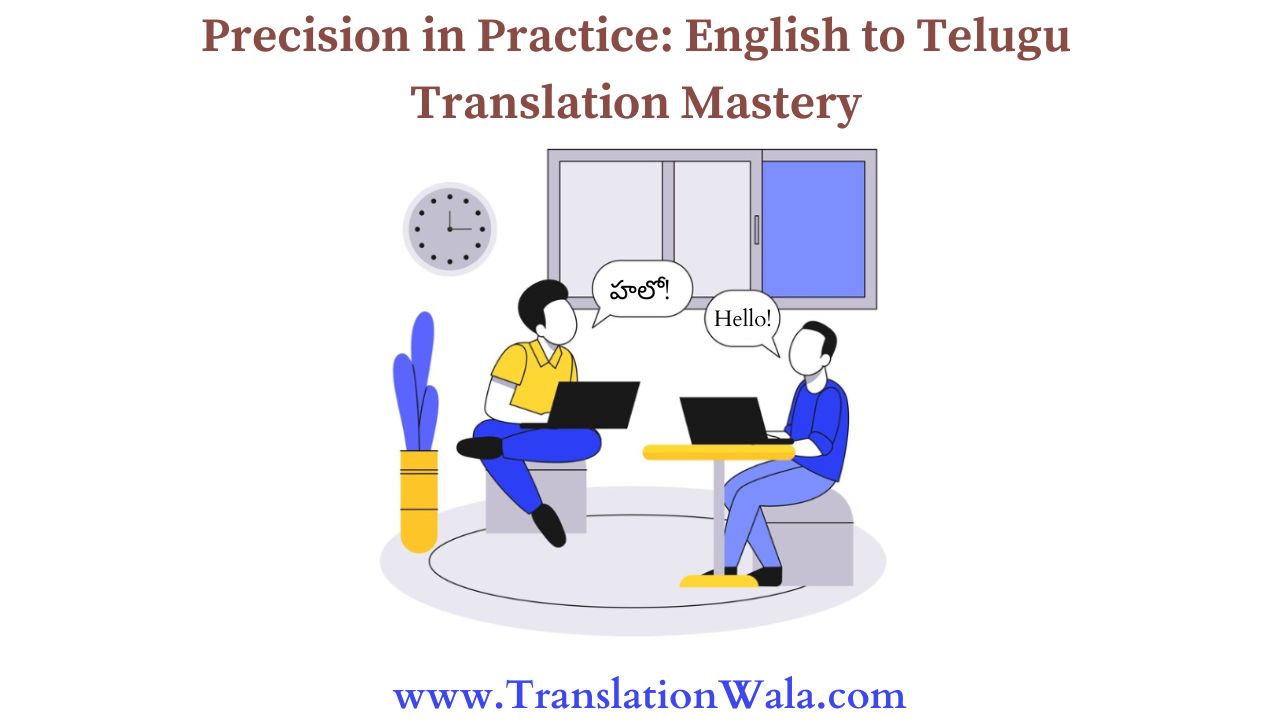Telugu is spoken by more than 80 million people around the world. It has a rich literature history and a strong cultural importance. To help people who want to talk to each other in English and Telugu, translation is a unique task that requires not only ease but also accuracy. This piece goes into great detail about how to learn English to Telugu Translation. It gives people who want to become translators the tools and knowledge they need to do well.
Understanding the Nuances: Cultural Context and Idioms
Telugu is deeply rooted in its culture, just like any other language. Many proverbs, quips, and slang phrases can’t be translated literally. A great translator does more than just translate words word for word; they also know what each phrase means in terms of culture.
For instance, The phrase “kick the bucket” translates literally to “బకెట్ను తన్నడం (bakettet nu tannadam)” in Telugu. An English person, on the other hand, wouldn’t use this term to talk about death. It would be more normal to say “పరలోకాలు చేరారు (paralokaalu cheraaru),” which translates to “reached the other worlds.”
Navigating the Formal and Informal Registers
There is a wide range of formalities in Telugu. For example, government papers, informal talks, and creative writing all use different forms of politeness. A great translation can pick up on these subtleties and changes how they work based on them.
Think about converting a business deal. In this case, clarity and accuracy are very important. There is no place for jargon and colloquialisms. The most important things are formal sentence order and words. When adapting a poem, on the other hand, you have to keep the emotional impact and flow of the lines. To get to the heart of something in Telugu, you might need to use a little creativity.
Also Read: Language Alchemy: Transforming Ideas with English to Bengali Translation
The Power of Research: Domain-Specific Expertise
There are different kinds of versions. For example, legal contracts, medical records, and technical papers all need more than just basic writing skills. A professional English to Telugu translation knows how important it is to do study and get to know the subject of the text.
For instance, if you want to translate a medical report, you need to know how to talk about certain diseases and medicines. Medical texts and internet tools can help you be sure of your readings and avoid mistakes that could be dangerous. This study makes sure that the translated text still means what it’s supposed to mean in that field.
Tools of the Trade: Leveraging Technology
While humans will always be the best at what they do, translation technology has made it possible to do many useful things. Tools for machine translation (MT), can help with the basics. But because they don’t cover all the details and situations, you should be careful.
MT is not a crutch for master interpreters; it is a place to start. They use it to get more done and find places where problems might happen. The finishing touch and culture awareness are still the job of the human translator.
Sharpening the Saw: Continuous Learning and Practice
Mastering translation is a process that lasts a lifetime. The world of English is always changing, and new words are added all the time. Master translations are always learning new things and keep up with the latest trends in both English and Telugu. They take advantage of chances to improve their careers, like classes and gatherings.
Also, practice is very important. As a English to Telugu translation works, they get better at translating words and phrases from one tongue to another. Asking native speakers and expert translators for feedback is a great way to learn how to do better.
The Ethical Imperative: Accuracy and Cultural Sensitivity
When you translate, you have a big moral duty. If you translate something wrong, it could cause confusion, wrong assumptions, or even legal problems. A great translation cares most about getting things right.
Cultural awareness is more important than truth. A master interpreter knows how their work might affect others and tries to stay true to the original meaning while also honoring the target language and culture.
Conclusion: The Reward of Mastery
Being able to translate from English to Telugu opens up a lot of ways to talk to people. It helps people from different cultures understand each other, shares information more easily, and makes the world more linked. You can start the satisfying road to becoming a master translation by following these tips: understand cultural context, master politeness, gain domain-specific knowledge, use technology wisely, and make a promise to keep learning. Remember that practicing carefully is the only way to reach your full potential as an English to Telugu translation.
